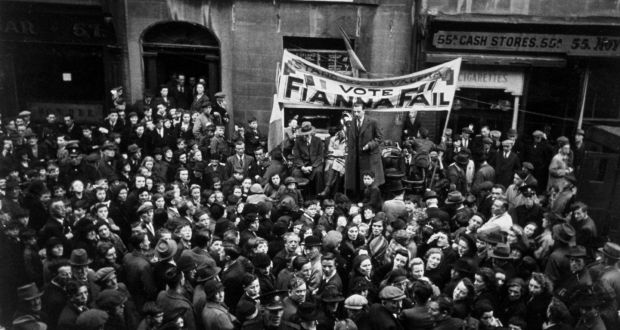State Papers: Secrets of the powers that be
The very real fear that the government, or at least the Taoiseach, Mr de Valera, felt in the summer of 1940 is a fact unintentionally revealed by some of the files.
The trail through documents began with a query from Prof. R. Dudley Edwards in UCD about the survival of papers from Irish embassies and legations abroad. Edwards wondered, for example, did the papers survive from the Irish embassy in Madrid during the war. Madrid at that time was a vipers’ nest of spies of both the British and the Axis powers.
An interview with Ambassador Con Cremin, then at the United Nations in New York, recalled in another context that when the Irish Embassy in Berlin had been gutted by a firestorm during an air-raid some records had been rescued. He removed the records, such as they were, and fled Berlin under orders to move nearer to the Swiss frontier. He eventually crossed into Switzerland.
Very little it seems had in effect survived, at least from Berlin, of the sort of papers that interested Prof. Edwards.
But the recollections of a staff member in Dublin were more extraordinary.
He recalled that in early 1940, when the “phoney war” came to an end in April 1940 with the swiftly moving invasion of France which ended with the surrender of the French and the retreat of the British at Dunkirk, the secretary of the department ordered him to go through the departments records with a view to weeding out any dealing with the relations of the Free State/Eire with Britain since 1928.
The task took him a fortnight, he recalled. These files, or at least 50% of them, were then destroyed. This was done by orders from the top, not the secretary of the department, but from the Minsters of Foreign Affairs, who was de Valera himself.
Patriarch
At this time David Gray, the US Ambassador, deemed that in Dublin in 1940 many people from de Valera down believed that the Germans were going to win the war. (Among these was Cardinal McRory in Armagh and Count Plunkett, whom he referred to as “the patriarch of the IRA”.)
In this conflagration many important papers must have been destroyed which would rewrite the history of the inter-war years.
What did de Valera fear? These papers would have compromised too many people in public and private life. There would have been too much in these files about the views held among officials about the Germans and the National Socialists.
Here too concentration camps would have come into existence to deal with them. The battle of Britain and the Blitz from June 1940 to mid-May 1941, ended with the fear of an immediate invasion of the off shore islands, as the aerial attacks by Britain and after December 1941, by the USA.
The dangers were real enough as it might well have involved paratroops and aerial action rather than a sea borne invasion.
But a year later the outlook though grim, was changed by Pearl Harbour which ensured hat in the long run Germany and the Axis powers would be defeated, as they had little real way of mounting an invasion of the continental US.
Had de Valera acted too perceptibly? Perhaps he had, but from today’s perspective it has meant severe curtailments of what we can know about a vital period in the emergence of the modern republic, an act that perhaps reveals de Valera’s true attitude to historical records.



